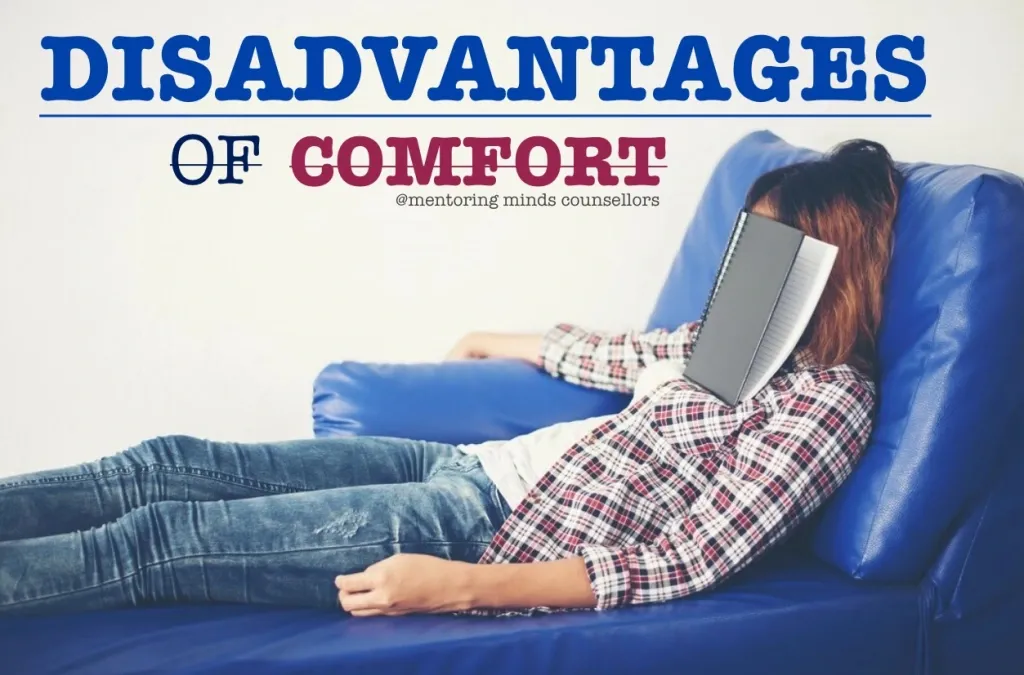1. Decreased Resilience
Comfort, in its simplest form, means avoiding discomfort or challenges. This can be incredibly tempting when we’re faced with stressful situations. However, this avoidance can make us less resilient over time. Facing difficulty and uncertainty are essential to developing coping skills and learning how to navigate life’s inevitable challenges. By staying in our comfort zones, we can stunt our emotional growth, making it harder to handle life’s ups and downs when they inevitably arrive.
2. Increased Anxiety
When comfort becomes the default state, any change or disruption can feel overwhelming. This is because we haven’t built up the mental fortitude to embrace uncertainty. The more we avoid discomfort, the more anxious we may become at the thought of stepping outside of our familiar routines. Anxiety thrives in environments where uncertainty is avoided, leading to a heightened fear of change. Over time, this fear can snowball, preventing us from pursuing new opportunities or growing personally.
3. Reduced Motivation
The more comfortable we become, the less we may feel the urge to pursue meaningful goals. Comfort is often equated with ease, and without challenge or the need to exert effort, our drive to achieve or improve can wane. People who stay in a constant state of comfort may experience apathy or a lack of motivation. Without the discomfort that pushes us to strive for something better, we risk falling into stagnation, which can breed feelings of hopelessness or dissatisfaction.
4. Social Isolation
Comfort often means staying within familiar surroundings, whether that be staying home, avoiding social situations, or sticking to the same routine. While these behaviors can be comforting in the short term, they may lead to social isolation over time. Loneliness is a major contributor to mental health issues, such as depression and anxiety. As we prioritize comfort, we may unintentionally distance ourselves from meaningful social connections, which are essential for emotional support and well-being.
5. Impacted Emotional Intensity
Comfort can numb us to life’s emotional highs and lows. When we’re constantly in a state of ease, we may become desensitized to emotions, both positive and negative. This emotional numbness can lead to a sense of disconnection from ourselves and others. We may also miss out on the beauty of life’s more challenging experiences, which often bring depth and richness to our emotional lives. In a sense, overindulging in comfort can limit our ability to fully engage with and appreciate our emotional landscape.
6. Lower Self-Esteem
Ironically, excessive comfort can sometimes erode our sense of self-worth. This is because when things come too easily, we may start to question our abilities. We might feel less proud of ourselves for achievements that require little effort or sacrifice. Mental health experts often emphasize the importance of self-efficacy believing in our ability to influence outcomes in our lives. Constant comfort may prevent us from developing this crucial belief, leading to feelings of inadequacy or worthlessness.
7. Overconsumption and Escapism
In today’s society, comfort is often associated with indulgence whether it’s binge-watching TV shows, overeating, or spending excessively. While these activities might provide short-term satisfaction, they can lead to unhealthy patterns of escapism. Using comfort as a means of avoiding life’s challenges can lead to addiction-like behaviors or an unhealthy dependence on external sources of relief. This can further strain mental health, leading to depression, anxiety, and guilt over our inability to break these patterns.
Conclusion:
We at Mentoring Minds Counsellors understand that Comfort, in moderation, is essential for well-being. It allows us to rest, recover, and recharge. However, when comfort becomes an unchallenged, default mode of existence, it can contribute to a host of mental health problems. It’s important to strike a balance embracing comfort when needed, but also seeking out the challenges that help us grow emotionally and mentally.
The key lies in learning to step outside our comfort zones intentionally. By doing so, we can cultivate greater resilience, strengthen our emotional connections, and build a deeper sense of satisfaction and well-being.


Leave a Comment